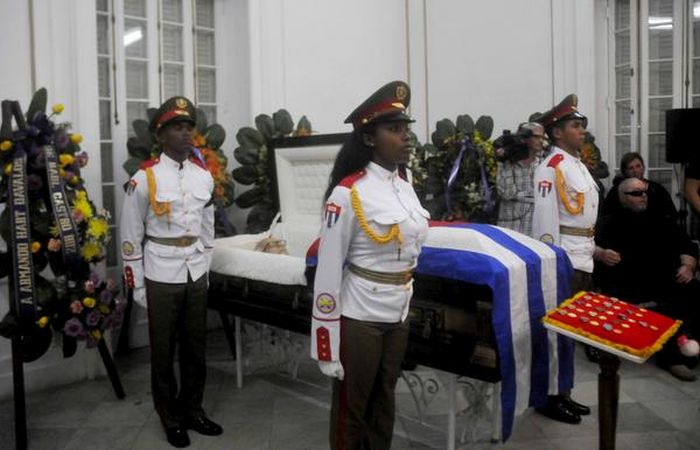
Outstanding revolutionary combatant Armando Hart Dávalos died on Sunday afternoon, due to respiratory failure
Hart was born on June 13, 1930 in Havana. Being a student of the University,
in which he enrolled in 1947, he held various responsibilities in the University Student Federation and Orthodox Youth. He graduated as Doctor in Law in 1952. He had a vertical attitude of rejection of the dictatorship of Fulgencio Batista. He joined the National Revolutionary Movement led by Rafael García Bárcena, and when he was accused of conspiracy in April 1953, he defended him as a lawyer, holding before the court the right of the people to rebellion. He suffered imprisonment on several occasions.
He was one of the founders of the 26 of July Movement and was part of the
Directorate that Fidel Castro left in Cuba. He participated in the uprising of November 30, 1956 in Santiago de Cuba. He worked closely with Frank País in the organization of the 26 de Julio Movement on the plain and in support of the Sierra Maestra. In 1957 he was arrested and sentenced to several years in prison. When he was taken to court for other accusations, he escaped and rejoined the clandestine struggle. He became the National Coordinator of the July 26 Movement and participated in several meetings in the Sierra Maestra. In 1958 he was arrested and imprisoned until the fall of tyranny.
After the triumph of January 1, 1959, he played important political and governmental responsibilities. He joined the National Directorate of the Integrated Revolutionary Organizations (ORI) and the United Party of the Socialist Revolution of Cuba, as well as the Central Committee of the Communist Party of Cuba from its constitution in October 1965 until his death. He was secretary of Organization of the Central Committee, first secretary of the Provincial Committee of the Party in the former province of Oriente and member of the Political Bureau from 1965 to 1991.
As Minister of Education, the first appointed by the Revolution, he did a valuable job, in which his role during the Literacy Campaign was highlighted. Appointed in 1976 as minister of the newly founded Ministry of Culture, a responsibility he held for more than 20 years, he had a significant place in the materialization of the cultural policy of the Revolution designed by Fidel. He was a member of the Council of State from 1976 to 2008 and deputy to the National Assembly of People’s Power since it was constituted in 1976 until his death.
As Director of the Office of the Marti Program and President of the José Martí Cultural Society since 1997, he dedicated himself with devotion to the dissemination of Martí’s life and work in Cuba and abroad. In 2010 he received the “José Martí” Order, the highest decoration granted by the Republic of Cuba. He was distinguished as Doctor Honoris Causa by numerous Cuban and foreign universities.
His extensive intellectual work, deeply rooted in Martí and Fidel ideals, has a prominent place among the best of Cuban revolutionary thought. Hart stood out for his humbleness, for his absolute loyalty to Fidel and Raúl, his permanent defense of the unity between the revolutionaries and his consecration, until his last breath, to the tasks that the Revolution entrusted him with.
 Escambray ENGLISH EDITION
Escambray ENGLISH EDITION





Escambray reserves the right to publish comments.